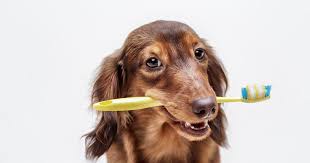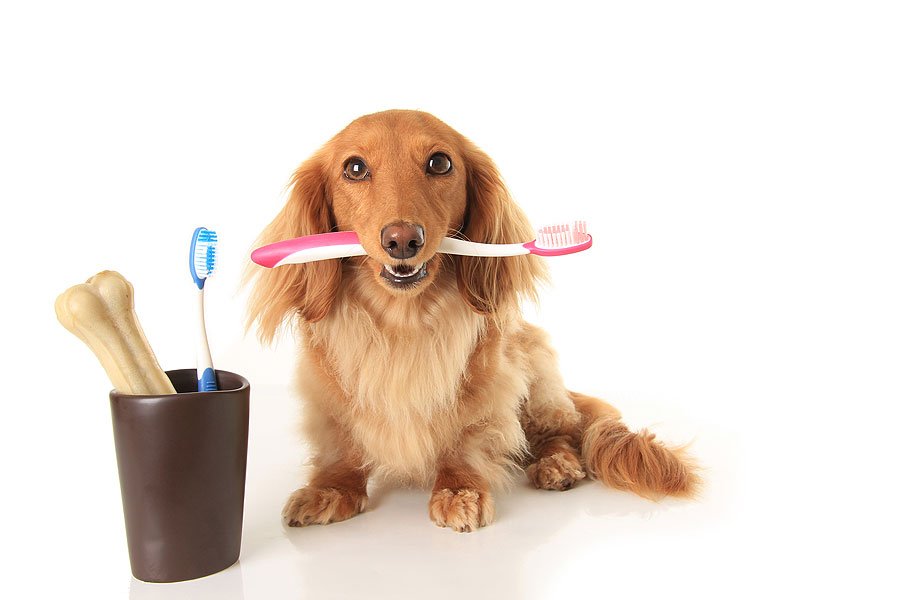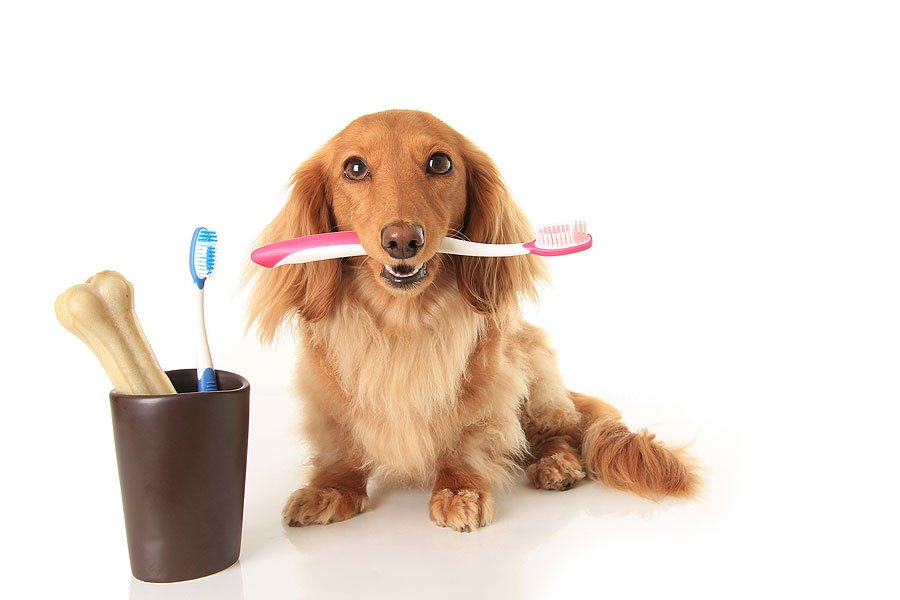
As a dog owner, I always want the best for my furry friend, Max, my Golden Retriever. From pondering over whether he can safely enjoy salmon skin to figuring out the secrets of keeping his teeth sparkling clean, there’s always something new to learn. One thing I’ve discovered is that dental health is just as important for dogs as it is for us. So, in this article, we’ll dive into why dog teeth cleaning is crucial, how to do it effectively, the top products to use, and some easy preventative measures to keep those pearly whites shining. Ready to give your pup a healthier, happier smile?
Thank you for reading this post, don't forget to subscribe!Why Dog Teeth Cleaning is Important
Health Benefits
Keeping your dog’s teeth clean isn’t just about fresh breath and a sparkling smile. It’s about their overall health. Regular dog teeth cleaning helps prevent periodontal disease, a condition that affects the gums and structures supporting the teeth. This can lead to painful infections and tooth loss if left untreated.
Personal Anecdote: When Max started having bad breath, I initially thought it was just something dogs have. But a visit to the vet revealed early signs of gum disease. Since then, I’ve been diligent about his dog teeth cleaning routine, and the difference has been remarkable.
Signs of Dental Problems in Dogs
It’s essential to recognize the signs of dental issues early on. Here are some common indicators:
- Bad breath
- Yellow or brown tartar buildup on teeth
- Red, swollen, or bleeding gums
- Difficulty eating or chewing
- Excessive drooling
- Pawing at the mouth
If you notice any of these signs, it’s time to take action and consult your vet for dog teeth cleaning advice.
How to Brush Your Dog’s Teeth
All you need is a toothbrush and a toothpaste, then what’s STOPPING you
- Dog Toothbrush: There are special dog toothbrushes designed for cleaning dog teeth. You can choose between a finger brush or a dual-headed brush that cleans multiple surfaces at once.
- Dog Toothpaste: Always use the best dog toothpaste designed for dogs. Human toothpaste contains ingredients that can be harmful and dangerous to dogs.
What Should You Use to Brush Your Dog’s Teeth?
Our Recommended toothbrush for your Pup
A good dog toothbrush is essential for effective dog teeth cleaning. Finger brushes are great for beginners because they give you more control. For larger dogs or those used to brush, a dual-headed dog toothbrush can cover more area efficiently.
Best Toothpaste to choose from the wide range of options
Dog-specific toothpastes come in various flavors that dogs love, like poultry or peanut butter. Brands like Virbac and Petrodex are popular choices among dog owners. These toothpastes are enzymatic, meaning they help break down plaque and tartar even without brushing, making them the best dog toothpaste options available for your furry friend.
Step-by-Step Guide to Cleaning Dog Teeth

Here’s a simple guide to brushing your dog’s teeth:
- Get Your Dog Comfortable: Always Start by getting your dog used to having their mouth touched. You can do this by gently lifting their lips and touching their teeth and gums.
- Introduce the Toothpaste: Let your dog lick a small amount of toothpaste from your finger to get them used to the taste.
- Use the Toothbrush: Apply a small amount of dog toothpaste to the dog toothbrush. Lift your dog’s lips and brush in small circular motions. Focus on the gum line where plaque builds up.
- Be Gentle and Patient: It might take a few tries for your dog to get used to this new routine. Be patient and reward them with treats and praise.
Personal Tip: I found that brushing Max’s teeth right after his evening walk, when he’s calm and relaxed, works best. Plus, he knows a treat is coming, which makes the whole process smoother.
Frequency of Dog Teeth Cleaning
How often should you brush your dog’s teeth? Ideally, daily dog teeth cleaning is best. However, brushing a few times a week can still make a significant difference in preventing dental issues.
Preventative Measures for Dog Dental Health
- Regular Check-Ups: Schedule routine vet check-ups for professional cleaners and to catch dental issues early.
- Proper Diet: Feed your dog a balanced diet with dry kibbles to help reduce plaque. Avoid sugary treats and table scraps.
- Chew Toys and Bones: Provide durable chew toys and raw bones (never cooked) to naturally clean teeth as your dog chews.
- Dental Chews and Treats: Use VOHC-approved dental chews like Greenies or Pedigree Dentastix to help reduce plaque and tartar.
- Water Additives and Oral Sprays: Use these products to complement brushing by reducing plaque and freshening breath.
Common Myths About Dog Teeth Cleaning
Myth: Dogs Don’t Need Regular Teeth Cleaning
Some dog owners believe that dogs don’t need regular teeth cleaning. This myth can lead to severe dental problems. Regular dental care is essential to prevent diseases and ensure your dog’s overall health.
Myth: Only Older Dogs Need Teeth Cleaning
Dental care is important for dogs of all ages. Starting a dog teeth cleaning routine with puppies helps them get used to brushing and prevents dental issues as they grow.
Personal Experience: I started brushing Max’s teeth when he was a puppy. Now, as an adult dog, he’s accustomed to the routine, and dental care has become a bonding activity for us.
Conclusion
Dog teeth cleaning is crucial for your furry friend’s health and well-being. Regular brushing, proper diet, and preventative measures can help keep your dog’s teeth clean and prevent serious dental problems. Remember, a healthy mouth leads to a happy dog.
FAQs
How often should I brush my dog’s teeth?
Ideally, you should brush your dog’s teeth daily. If that’s not possible, aim for at least a few times a week.
What type of toothbrush and toothpaste should I use for my dog?
Use a dog toothbrush designed for cleaning dog teeth, such as a finger brush or a dual-headed brush. Always use dog-specific toothpaste, as human toothpaste can be harmful to dogs. The best toothpaste for dogs is enzymatic and comes in flavors they enjoy.
Are there any risks associated with professional teeth cleaning?
Professional teeth cleanings are safe when performed by a veterinarian. However, they often require anesthesia, which carries some risks, especially for older dogs. Discuss any concerns with your vet.
Can dental issues affect my dog’s overall health?
Yes, dental issues can lead to serious health problems, including heart, liver, and kidney disease. Maintaining good oral hygiene is essential for your dog’s overall health.
What are the best dental chews for dogs?
Look for dental chews approved by the Veterinary Oral Health Council (VOHC). Popular options include Greenies and Pedigree Dentastix.
Taking care of your dog’s teeth is a vital part of their overall health. By incorporating regular dog teeth cleaning, providing dental chews, and scheduling routine vet check-ups, you can ensure your dog’s smile stays bright and healthy. Remember, a little effort goes a long way in keeping those tails wagging happily!

